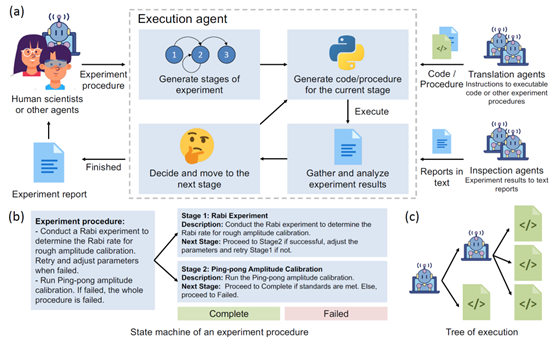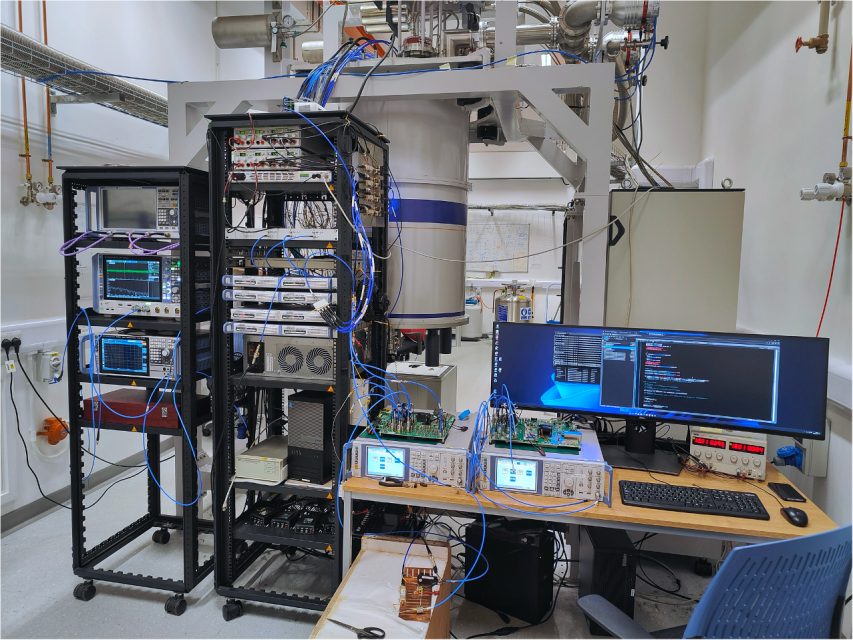Physicists at the University of Oxford have developed a new artificial intelligence framework that enables laboratories to run complex experiments autonomously.
Self-driving laboratories are seen as a way to accelerate scientific discovery, but until now a major challenge has been integrating the specialist knowledge that scientists use to plan, adapt, and interpret experiments. The Oxford-led team has addressed this by creating a system of language model-driven “agents” that can capture and apply laboratory knowledge in real time.
The researchers tested their approach on superconducting quantum processors, a leading platform for quantum computing that requires frequent calibration and fine-tuning. Using the new framework, the AI agents were able to break down multi-step experimental procedures, translate natural language instructions into code, and analyse the results to decide on the next step. In demonstrations, the system successfully calibrated qubits and generated entangled states, achieving performance on par with expert researchers.

This agent-based architecture allows different AI agents to collaborate, with some translating instructions, others evaluating data, and a central execution agent managing the process. By enabling closed-loop feedback, the system can repeat or adapt experiments dynamically, mirroring the decision-making of human scientists.

Although the study focused on quantum computing, the researchers suggest the method could be applied across experimental sciences, offering a scalable route towards more intelligent, adaptable laboratory automation.
The study, led by Dr Shuxiang Cao from NVIDIA and the University of Oxford and Dr Zijian Zhang from the University of Toronto. This experiment was conducted at the Oxford Superconducting Device Lab and the University of Toronto Matter Lab.
Automating quantum computing laboratory experiments with an agent-based AI framework, S Cao et al., Patterns, 23 September 2025

